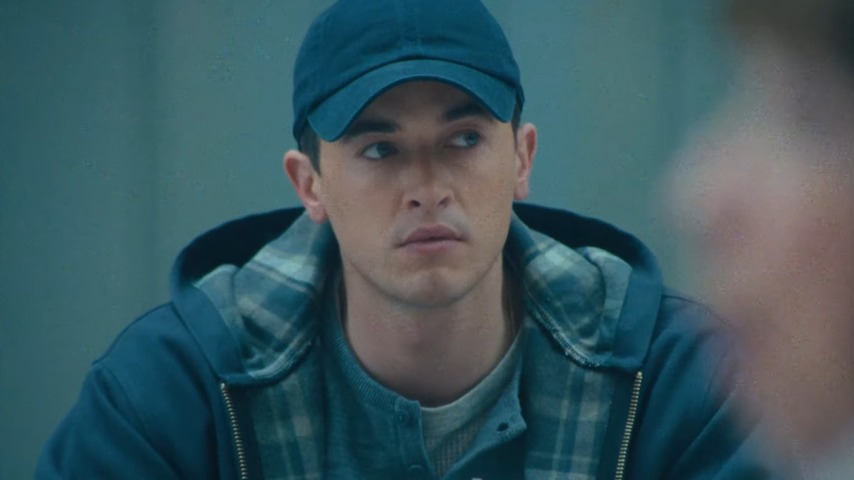Cruising tragedy Plainclothes is brought to its knees by relentless stylistic futzing
Filmmaker Carmen Emmi can't decide on an aesthetic for his gay drama.
Photo: Magnolia Pictures
The trying-on of various personae and the donning of different masks for different situations are routines that the closeted develop to self-actualize and self-protect. Passing, either as visibly straight or as benignly asexual, is a queer survival skill. This ability can also be weaponized, as it is in writer-director Carmen Emmi’s jittery feature debut Plainclothes. A far less sensational (and far less effective) take on Cruising and its ilk, the film sees Tom Blyth play Lucas, a twinky undercover cop whose job somehow entirely consists of entrapping men cruising for sex at a New York mall’s food court restroom in 1997. When Lucas falls for one of his would-be victims, Andrew (Russell Tovey), Plainclothes becomes a gay tragedy brought to its knees by its filmmaker’s unrelenting stylistic futzing.
Neither Blyth nor Tovey (both Englishmen) look or sound like they belong in the well-constructed Syracuse period setting, but this detail is overwhelmed by Plainclothes‘ indecisive formal aesthetic. As the relationship between the hesitant Lucas and confident Andrew develops (while both men hide their actions from the women they’re in relationships with), and the film develops from its tired “homophobes are probably just gay” shorthand to a more nuanced and upsetting place lodged in its repressive era, Plainclothes‘ look is constantly in motion.
 Keep scrolling for more great stories.
Keep scrolling for more great stories.
